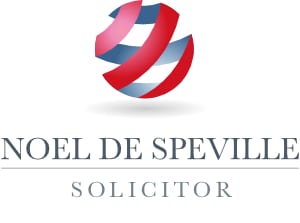French Income Tax
Personal liability for French income tax will obviously vary depending upon the different circumstances of the taxpayer. One of the guiding principles is that families and children are favoured with reasonably generous tax breaks. For example, someone who is married and works with a spouse who looks after their two children will generally pay half the tax of a single person with no children.
The rate of tax varies from 0 to 40. Using 2006 figures, a single person earning between 24,872 to 66,679 euros would pay a top rate of 30% tax on that amount, with a maximum cap of 14,764 euros payable on that band of earnings, whilst a married couple would have to earn between 69,342 to 133,358 euros to pay a top rate of 30%, with a maximum cap of 25,131 euros payable on that band of earnings.
Pension income for those over retirement age is taxed reasonably in France, but beware of other taxes and charges levied upon this and other income, such as the cotisations (contributions), which are briefly mentioned below.
Obviously, these rates of tax may well be subject to change.
Other French Taxes and Charges
In addition to French income tax, be aware that you will need to register for and pay other social taxes and charges (cotisations).
The two main types of cotisations which may concern someone settling in France from overseas are Health Cover and Social Security payments.
For someone settling in France with the intention of perhaps becoming resident, these cotisations taken together can amount to a significant proportion of income. Whether or not these cotisations are payable will depend upon individual circumstances and whether you are considered by the French fiscal authorities to be resident in France.
Taxe d’Habitation (Residence Tax)
This is a local tax that can be likened to a form of French council tax. The taxe d’habitation is payable by the owner of any built land, provided the building is fit for habitation, whether or not that building is physically occupied. The tax is payable annually each autumn. In a sale of built land, the tax is payable in full by the person who was in ownership of that land in the month of January of the year in which the property was sold.
The tax is based on the notional rental value of the property, which is reviewed annually. The findings of the review can be contested by making timely, appropriate representations to the relevant authority. It is important to note that if the property is let out to a tenant, the payment of this tax falls to that individual, and not to the owner of the property.
Taxe Foncière (Local Land Tax)
This tax is payable on all French freehold property, whether or not the owner is in occupation. The demand for this tax is usually received in the autumn, when the deadline for the payment will be specified. When a buyer purchases the freehold of a property, it is standard practice on completion to reimburse the vendor pro rata for any taxe foncière paid by him, but not notionally used up.
The proportion of tax paid is determined by the notary at the time of completion, provided that such a division is stipulated in the promesse de vente or the compromis (ie the preliminary contract). The tax foncière consists of two parts – namely, a levy on the land and one on any buildings standing on the land. Consequently, the authorities must be notified of any improvement to buildings, as this will have an impact on future tax bills.
Taxe sur la Plus-Value (Capital Gains Tax)
Capital gains tax is charged in France on gains which accrue in respect of one off, arm’s length transactions which take place outside of the usual course of business. For example, any benefits from purchasing and reselling land in the course of business will only incur income tax or corporation tax, depending upon whether the vendor is a private individual. Furthermore, capital gains tax is not chargeable on either inter vivos gifts (gifts made in the lifetime of the donor) or dispositions made by Will. Both types of gift attract inheritance tax only. In truth, there is an element of capital gains tax concealed in the inheritance tax, as the value to be charged to inheritance tax reflects the value of the gift at the time of its grant and not at the time when it was first acquired by the donor or testator.
When it comes to taxing capital gain on the sale of residential property, French revenue law exempts such property from capital gains tax inasmuch as such sale relates to the principal private residence of the disposer and is effectively occupied by him at the time. This exemption applies to British nationals, who are residents in France for income tax purposes, upon selling their principal residence there. Owners selling a private residence that is not their principal home are liable to pay capital gains tax on such a sale, regardless of their nationality or residency status (save for some exceptions not covered here), subject to taper relief, which effectively takes the sale out of charge to capital gains tax altogether, if the property has been retained in their ownership for 22 years or more.
The current rate of capital gains tax before taper relief is 19% where the gain accrues (inter alia) to:
- A resident selling a “secondary” home,
- A non-resident individual, and
- A resident “land” company owned by non-resident individuals.
This rate increases to 33% where the property is owned by a resident or non-resident company paying corporation tax in its country of incorporation. Such a company incidentally, is not eligible for taper relief in France. As with most areas of law, the issue of taxation is an area in which advice tailored to one’s individual circumstances is preferable.


